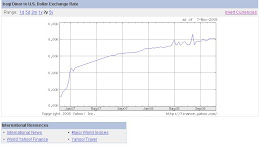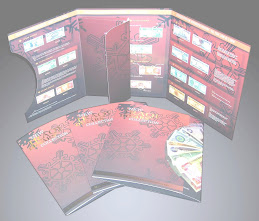At a news conference after wrap up of the International Compact with Iraq (ICI) meeting hosted by the State of Kuwait, Saleh said Saudi Arabia expressed readiness for forwarding USD one billion as grants and loans in addition to USD 500 million as facilities to the Iraqi businessmen and private sector.
The US poised ready to extend fresh assistance for the process of reconstruction and bolstering the security potentials and the EU promised extending fresh bundle of donations.
Iraq's infrastructure was ravaged by decades of sanctions and war during the rule of deposed President Saddam Hussein, and by the US-led invasion in 2003 and the violence that followed.
Reconstruction has been hampered by insurgent attacks which forced many projects to be halted and diverted funds away from rebuilding and into increased security, said Saleh.
The oil industry has been hit by frequent sabotage.
This is besides many other pledges still under discussion, he said hoping that the vision will be clearer in the coming few weeks, regarding economic aid as well as making available donations and soft loans, beside the writing off Iraq's debts and the early penalties imposed on Iraq and encouraging the private sector to invest in the war-torn Arab country.
He said the ICI in itself includes reciprocal commitments by the Iraqi government and its international partners.
Saleh underlined that the Iraqi government led by Nouri Al-Maliki is serious on implementing a reform program and the Political National Security Council has set a timetable for national reconciliation besides other legislations to address the political, security and economic complications.
He admitted that the current stage in Iraq is harsh and difficult but cooperation of the international community is needed to combat terrorism and extremism.
Iraq, he went on, shoulders the problems of the whole region and scores are being settled by many parties within the Iraqi arena, and hopefully Iraq will be moving soon to the security and stability stage.
To a question he said the importance of the security factor should not be marginalized and the efforts should be doubled because security of Iraq is in the end result the security of the whole region.
To a question posed by Kuna he admitted the spread of corruption in his country that hinders the reform process and stirs the security conditions.
Saleh said, his government has a tough timetable to push reforms that included a recently-passed investment law. The government set a target to cut unemployment by at least 15 percent, he said.
"The International Compact represents a carefully-drafted roadmap to clarify how can Iraq with the help of its international partners, achieve economic self-sufficiency in the medium term," he stressed.
To succeed, Iraq needs progress in three areas, "political reconciliation ... achieving security and stability in all regions ... and achieving economic growth and prosperity." But Iraq won't be able to achieve any of the goals under the compact without generous international support.
ICI's preparatory group included the UN, US, UK, United Arab Emirates (UAE), Kuwait, World Bank, International Monetary Fund (IMF), European Union (EU), Arab development funds, Islamic Development Bank (IDB), France, Germany, Italy, Japan, Saudi Arabia, South Korea and Spain. (Source)Kuna

